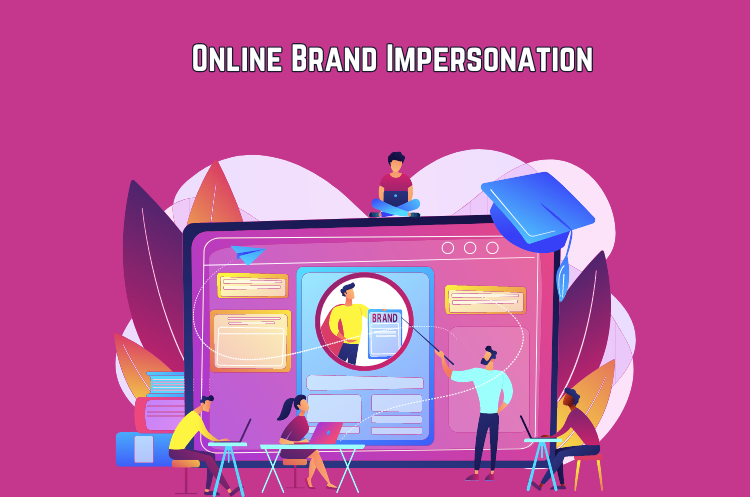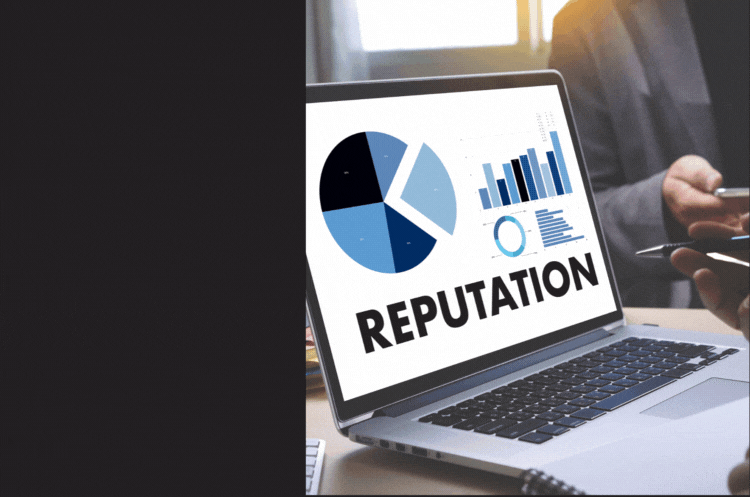What are the most prevalent online threats to a brand’s reputation?
In an era dominated by digital interactions and online presence, protecting a brand’s reputation has become a paramount concern for businesses. As consumers increasingly rely on the internet for information and engagement, companies must be aware of the prevalent online threats that can potentially harm their image and erode consumer trust. In this article, we will delve into the most common online threats faced by brands and explore actionable strategies to mitigate their impact.
Cybersecurity Challenges:
The digital age has ushered in an era of unprecedented connectivity, but it has also brought about significant cybersecurity challenges. A Report highlights the alarming lack of awareness among businesses regarding the state of their domain name portfolios. This is particularly concerning given the rising tide of phishing and online fraud.
Phishing: A nefarious technique wherein malicious actors attempt to deceive individuals into divulging sensitive information through deceptive emails or fraudulent websites. This not only puts personal data at risk but also poses a substantial threat to corporate security.
Malware: Various forms of malicious software, such as ransomware attacks, can disrupt operations and result in financial losses. The encryption of files and the subsequent ransom demand not only impact the bottom line but also inflict damage to a brand’s reputation by undermining consumer trust.
Data Leaks and Breaches:
The specter of data breaches looms large in the digital landscape, casting shadows on brands and their reputations.
Hacking: Cybercriminals infiltrate a company’s network, exposing the personal information of both customers and employees. The breach of trust that follows can have severe repercussions for a brand’s reputation.
Insider Threats: Individuals within an organization may misuse their access privileges, intentionally leaking sensitive information. This internal betrayal can result in significant reputational damage.
Inadequate Cloud Security: Businesses relying on cloud storage face the risk of breaches due to misconfigurations or lax security measures. Ensuring robust cloud security is imperative in preventing reputational harm.
Negative Online Reviews and Feedback:
In an age where online reviews wield significant influence over consumer decisions, negative feedback can be a potent weapon against a brand’s reputation.
Fake Reviews: Crafted by competitors or disgruntled individuals, fake reviews aim to spread false information and tarnish a brand’s image.
Genuine Negative Feedback: Authentic negative reviews, while potentially discouraging, provide valuable insights into areas where a brand may need improvement. Addressing these concerns promptly is essential for mitigating reputational damage.
Viral Negative Social Media Posts: A single negative post has the potential to reach millions, causing widespread backlash. Proactive monitoring and swift action are imperative to maintain a positive online image.
Social Media Impersonation:
As social media platforms gain prominence, impersonation has become a common tactic to deceive consumers and damage a brand’s reputation.
Fake Brand Accounts: Malicious actors create accounts that mislead customers, causing confusion and tarnishing the brand’s image.
Spoofed Profiles: Impersonating key personnel within an organization can manipulate customers, leading to confusion and distrust.
Account Hijacking: Gaining unauthorized access to social media accounts allows malicious actors to post misleading content, resulting in the loss of followers and reputational damage.
Brandjacking:
Brandjacking involves the unauthorized use of a brand’s identity for illegitimate purposes.
Domain Name Infringement: Cybercriminals register domains resembling legitimate ones, hosting malicious content and confusing consumers.
Trademark Abuse: Unauthorized use of a brand’s trademark misleads consumers, compromising the brand’s integrity and potentially resulting in financial losses.
Counterfeit Products: Imitation goods tarnish a brand’s reputation, associating negative experiences with the authentic brand.
Cyber Defamation and Smear Campaigns:
Cyber defamation involves spreading false or damaging information about a brand or individual.
False Allegations: Fabricated product defects or unethical business practices can cause irreparable harm.
Reputation Sabotage: Deliberate actions by individuals or competitors create negative content to tarnish a brand’s image.
Cyberbullying: Online harassment directed at a brand’s social media accounts or website creates a hostile environment, potentially causing reputational damage.
Phishing Scams:
Phishing continues to be a prevalent threat, targeting both individuals and businesses.
Email Phishing: Deceptive emails mimic legitimate organizations, tricking individuals into divulging sensitive information and jeopardizing security.
Spear Phishing: Personalized messages targeting specific individuals or organizations increase the chances of success.
Whaling: Phishing targeting high-ranking individuals within organizations can result in the compromise of confidential information and reputational damage.
Online Brand Impersonation:

Creating fake websites, phony social media profiles, or copycat marketing campaigns mimicking a brand’s identity.
Fake Websites: Designed to deceive customers into sharing personal information or making unauthorized purchases, damaging the brand’s reputation.
Phony Social Media Profiles: Imitating a brand’s official accounts to deceive customers into engaging with fraudulent entities, leading to reputation damage.
Copycat Marketing Campaigns: Attempting to piggyback on established brands can erode a brand’s reputation by diluting its unique features and confusing consumers.
SEO Manipulation and Domain Hijacking:
Tactics aimed at misleading search engines and diverting traffic from legitimate brand websites.
Negative SEO: Unethical techniques, such as spammy backlinks, harm a brand’s reputation by associating it with low-quality content.
Domain Hijacking: Unauthorized access to a brand’s domain registration account can result in a loss of customer trust and compromise security.
Keyword Stuffing: Excessive use of irrelevant keywords manipulates search engine rankings, diminishing the quality and trustworthiness of the associated website.
Cyber Extortion:
Tactics are used by malicious actors to extract money or assets through threats and coercion.
Blackmail Threats: Threatening to release sensitive information unless a ransom is paid negatively impacts a brand’s reputation.
Cryptojacking: Unauthorized use of a brand’s computing resources to mine cryptocurrencies raises concerns about security and operational efficiency, potentially tarnishing its reputation.
Navigating the Digital Horizon
In the vast and ever-evolving digital landscape, businesses must be vigilant in safeguarding their online reputation. By understanding the diverse threats, from cyberattacks to brand impersonation, organizations can implement robust cybersecurity measures and reputation management strategies.
Build Brand Better: Your Trusted Online Reputation Management Partner
In the intricate dance of the digital realm, Build Brand Better stands as a stalwart ally in safeguarding and enhancing your online reputation. With a dedicated team of experts committed to mitigating online threats and maintaining a positive brand image, we pride ourselves on being the go-to online reputation management company.
Why Choose to Build Brand Better?
Comprehensive Reputation Solutions: We offer a range of services tailored to address diverse online threats, ensuring comprehensive protection for your brand.
Proactive Monitoring: Our advanced monitoring systems keep a vigilant eye on online channels, swiftly identifying and addressing potential threats before they escalate.
Strategic Response: In the face of negative online content, our team employs strategic response measures to minimize reputational damage and promote positive brand perception.
Customized Approach: Recognizing that every brand is unique, we tailor our strategies to align with your specific needs, providing personalized solutions for maximum effectiveness.
Trusted Expertise: With years of experience in the field, Build Brand Better has earned a reputation for excellence, delivering results that matter.
Don’t let online threats jeopardize your brand’s reputation. Choose Build Brand Better for unparalleled online reputation management, and secure your brand’s success in the digital realm.
FAQ
Q1: What are the most common cybersecurity challenges that businesses face in the digital age?
A1: The most prevalent cybersecurity challenges include phishing attacks, where malicious actors attempt to deceive individuals through deceptive emails or websites. Additionally, malware, such as ransomware attacks, poses a significant threat by disrupting operations and compromising sensitive information.
Q2: How can businesses protect themselves from phishing and malware attacks?
A2: Businesses can enhance their cybersecurity defenses by implementing comprehensive protection strategies. This may include employee training programs to recognize phishing attempts, robust antivirus software, and regular security audits to identify and address vulnerabilities.
Q3: What is the impact of data breaches on a brand’s reputation?
A3: Data breaches can severely damage a brand’s reputation by exposing personal information of customers and employees. The breach of trust that follows can lead to a loss of consumer confidence and have long-lasting negative effects on how the brand is perceived.
Q4: How can businesses address negative online reviews and feedback?
A4: Addressing negative online reviews requires a proactive approach. Businesses should respond promptly and professionally to genuine concerns, demonstrating a commitment to resolving issues. For fake reviews, reporting mechanisms on review platforms can be utilized to minimize their impact.
Q5: What steps can be taken to prevent social media impersonation of a brand?
A5: Vigilant monitoring of social media channels is crucial. Businesses should actively report and request the removal of fake brand accounts. Implementing account verification measures on official accounts can also help consumers distinguish between genuine and impostor profiles.
For more Blogs:- www.buildbrandbetter.io/blog/

